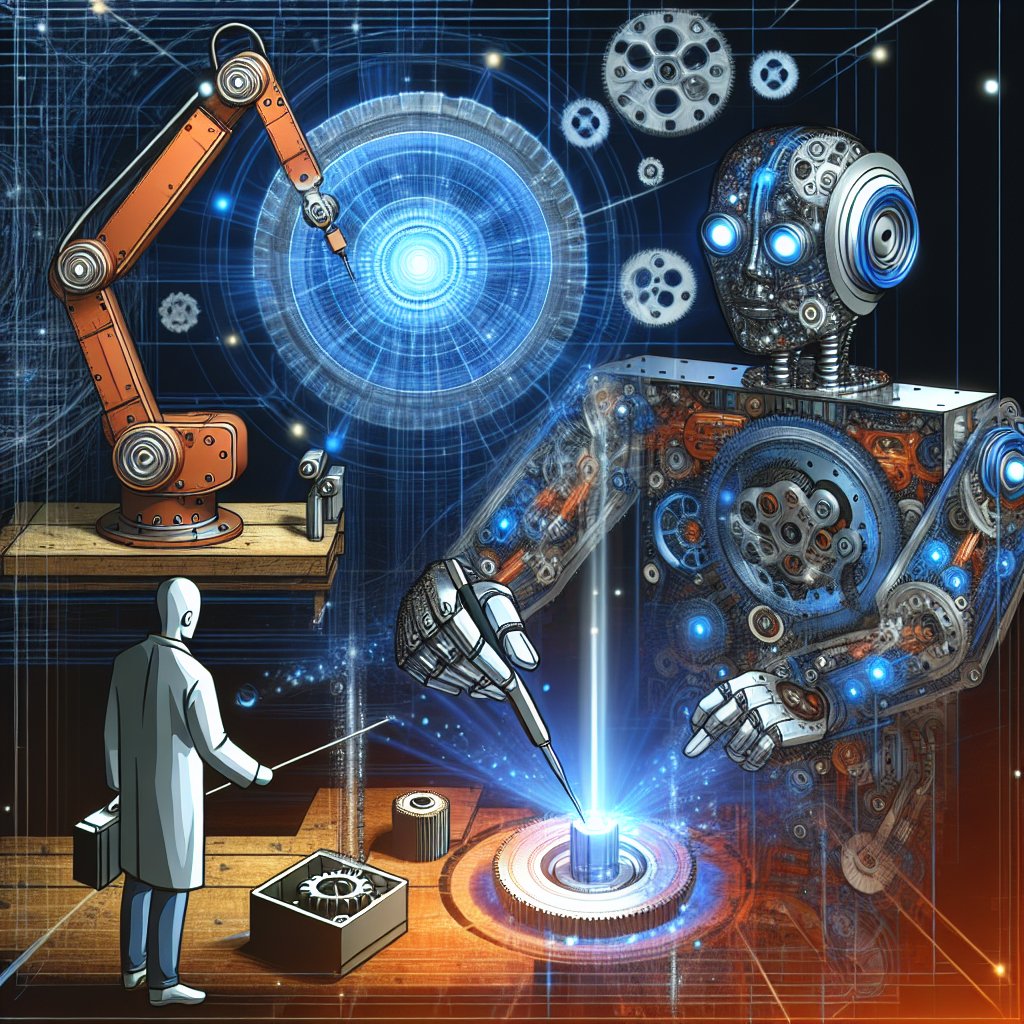The dynamic landscape of engineering is poised for a transformation as AI intersects with the mechanical engineering domain, drawing attention to the pressing question: Will AI replace mechanical engineers? The integration of AI into mechanical design, automated systems, and predictive maintenance signals an evolution in the role of mechanical engineers, necessitating adaptability and continuous learning.
Use of AI for Mechanical Engineers
The integration of Artificial Intelligence (AI) into the realm of mechanical engineering is revolutionizing how mechanical engineers approach design, analysis, and manufacturing processes. AI systems empower mechanical engineers with advanced tools for simulation, optimizing workflows, and predicting equipment failures before they happen. By harnessing machine learning algorithms and predictive analytics, these professionals can significantly enhance the precision of mechanical components, reduce downtime, and streamline the development of innovative solutions. Such advancements are pivotal in industries ranging from automotive to aerospace, where the marriage of AI and mechanical engineering is pushing the boundaries of what’s possible in design, safety, and efficiency.
The Potential for AI to Replace Mechanical Engineers
The discussion surrounding the advent of artificial intelligence (AI) and its impact on various professions has become increasingly prevalent, with mechanical engineering being no exception. Mechanical engineers are pivotal in designing, analyzing, and manufacturing mechanical systems, a domain that requires a profound understanding of physics, materials science, and principles of energy. However, the integration of AI technology in this field is starting to reshape the traditional landscape. AI brings to the table advanced data analysis, machine learning algorithms, and automation capabilities, which can significantly enhance the efficiency, accuracy, and innovation in mechanical engineering tasks.
As industries worldwide continue to embrace digitization, the potential for AI to replace certain functions traditionally performed by mechanical engineers is becoming a reality. From automated design systems that optimize complex components to predictive maintenance tools that foresee machinery failures, AI applications are proving to be powerful assistants. Nonetheless, the creativity, critical thinking, and complex problem-solving skills of human engineers are not easily replicated by AI, suggesting a collaborative future where AI complements rather than supplants the expertise of mechanical engineers. The balance between AI’s capabilities and the irreplaceable human element forms the crux of the debate about AI’s role in the future of mechanical engineering.
Can AI Augment the Work of Mechanical Engineers?
As the technological landscape evolves, the conversation about the role of artificial intelligence (AI) in engineering disciplines has gained significant traction. In the realm of mechanical engineering, AI presents promising opportunities for augmentation and efficiency enhancement. Mechanical engineers, known for their critical role in designing, analyzing, and manufacturing mechanical systems, can now leverage advanced AI tools to optimize complex processes, predict maintenance issues, and innovate in product development. The integration of AI in mechanical engineering not only streamlines workflows but also facilitates the exploration of new frontiers in materials science, thermodynamics, and fluid dynamics, thereby enabling mechanical engineers to achieve breakthroughs that were once deemed impossible.
The value of AI in assisting mechanical engineers extends beyond mere computational tasks. Through the application of machine learning algorithms, AI systems can process vast amounts of data to provide insights that inform better decision-making. For instance, AI-enhanced simulation models can predict performance outcomes with a higher degree of accuracy, allowing mechanical engineers to refine their designs with a level of precision previously unattainable. Additionally, with AI’s capability to monitor real-time data from machinery and equipment, mechanical engineers can anticipate potential failures and implement preventative measures. The synergy of AI with mechanical engineering not only boosts productivity but also fosters a culture of innovation that is essential for the sustained development of the industry.
Skills Mechanical Engineers Will Need in the AI Era
As the dawn of artificial intelligence (AI) ushers in a new age for industries worldwide, mechanical engineers face a transformative landscape that demands the integration of advanced skill sets. Traditional engineering competencies must now be complemented with proficiencies in AI and machine learning to push the frontiers of innovation. AI’s role in optimizing design processes, enhancing predictive maintenance, and streamlining manufacturing workflows underscores the necessity for mechanical engineers to become adept at applying AI-driven solutions. Acquiring these skills will not only enhance their problem-solving arsenal but also position them as invaluable assets in a tech-driven future.
Equally critical is the ability for mechanical engineers to adapt by cultivating a robust understanding of data analysis and interpretation. The era of AI is heavily data-centric, with machine learning algorithms relying on vast datasets to improve and learn. Mastery of data analytics tools will enable mechanical engineers to feed AI systems with quality data and make informed decisions based on algorithmic insights.







